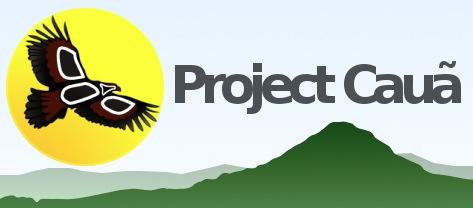
A high-leverage business project for free software and low-cost hardware.
Too often we hear a project or an idea dismissed because it tries to “boil the ocean” instead of something more modest, like poaching an egg. But the problem with modesty is that we've seen the ocean boiled, many times. Linux is the prime example. Linus himself half jokingly talked about “world domination” in the mid-'90s, long before it actually happened. Other examples go back as far as J.C.R. Licklider, whose writings on “man-computer symbiosis” and the “Intergalactic Computer Network” predated the personal computer and the Internet by several decades. Both free software and open source also were intentional ocean-boiling efforts, which continue to pay off today in degrees of social, economic and technical value beyond calculation.

Watching successful ocean-boiling efforts encourages ambitions on the same scale. It certainly has for me (but we'll leave that one for another EOF—after we start seeing results). It also has for Jon 'maddog' Hall, who has been an accessory to Linux's success right from the start. But, maddog is a modest guy. These days he's not trying to boil a whole ocean, but instead putting the heat on just one country: Brazil.
What he's cooked up is Project Cauã (www.projectcaua.org). Although the Web site's first paragraph describes it as “a Free and Open Source Software and Hardware (FOSSH) project conceived to make it possible for people to make a living as a Systems Administrator/Entrepreneur using FOSSH as the basis”, its ambitions are larger than that. maddog wants to create a whole new business category with lots of jobs in it, while greening everything up by sucking less power off the grid and making cities more livable.
I got some hang time with maddog when he spoke at an MIT gathering earlier this year, and I like where he's going with Project Cauã. He looks at a city like São Paulo (one of the world's largest) and sees “tall buildings and apartment complexes with servers in the basements and thin clients in the rooms” and “large new business opportunities for small entrepreneurs, manufacturers, and the economics that both support.” When people ask, “How can I make money with free software?”, his answer is “By renting out thin clients, server space and services to back both, in large volume and at low costs.”
On the technical side, “The software is done, and the hardware is close.” The University of São Paulo has agreed to design the thin-client hardware and license the design to manufacturers, who will compete to provide components and finished gear at the best prices. This will provide some needed income to the university as well.
“But the main part of this isn't technical”, maddog says. “It's economic. Most of our work will go into running the pilot project and preparing educational and documentation materials. We want to make starting and maintaining a business as easy as possible, for as many people as possible.”
Thin clients and fat servers make equally good business and technical sense in a city like São Paulo—and across the rest of Latin America, where the vast majority of people live in urban areas, especially as both television and computing are moving onto the Net and into “the cloud”. A cheap connected device with a good display (also cheap these days) and a capable server with plenty of low-latency storage is a bargain for customers and a business for entrepreneurs who like to be highly connected (literally and otherwise) to their communities.
With its concentrated urban populations, proactive government, cooperative universities, advanced manufacturing facilities and growing FOSSH-friendly technical community, Brazil is a large lever on the rest of Latin America and the world beyond. “After we get it working in Brazil, we'll translate the materials into Spanish, then run pilots in other countries. Or help others do it for themselves. We'll all learn by doing.”
For a new entrepreneur, here's the drill:
Train on FOSSH system administration.
Get certified, licensed and bonded.
Get letters of intent from prospective customers.
Get underwritten loan commitments from banks.
Buy and install the gear.
Deliver services.
Get feedback from services.
Improve documentation and shared knowledge with others in the same business.
The most recent developments are timely. Says maddog:
The other main driver for Project Cauã, Douglas Conrad of OpenS Tecnologia, has put together a home-theater thin-client solution that we will start selling through the “Entrepreneurs”. This will show people that the SA/E (system administrator/entrepreneur) model can work and that SA/Es can sell things, support clients and make money.
We want to show the prototype at FISL (June 28–July 2nd) in Porto Alegre, Brazil, and have it ready to start being sold by SA/Es shortly after that. We will probably have intensive training on Project Cauã in the November/December time frame at Latinoware in Foz do Iguassu, Brazil.
Right now, maddog and friends are evangelizing the project and raising funds. maddog says, “We need that funding because volunteers only get us so far. Some things require funding, such as legal work, working with the government, paying fees for registration, typing and clerical work, documentation, buying hardware and other areas. Once we have the money guaranteed, we can start hiring and begin the project in full force. It should take six months from that point until we start a pilot.” His goal for funding at the outset: “Three million US dollars, guaranteed.”
For investors, the “play” isn't Project Cauã, but the entrepreneurs it bootstraps. For the biggest and most aggressive investors, $3 million is an ATM withdrawal. My advice for them—and for anybody wanting to heat things up—is to step up to Project Cauã's table and start placing some good bets.
Postscript: thanks to maddog for his patience while I wrote this up and to podcast.de for some of the quotage.